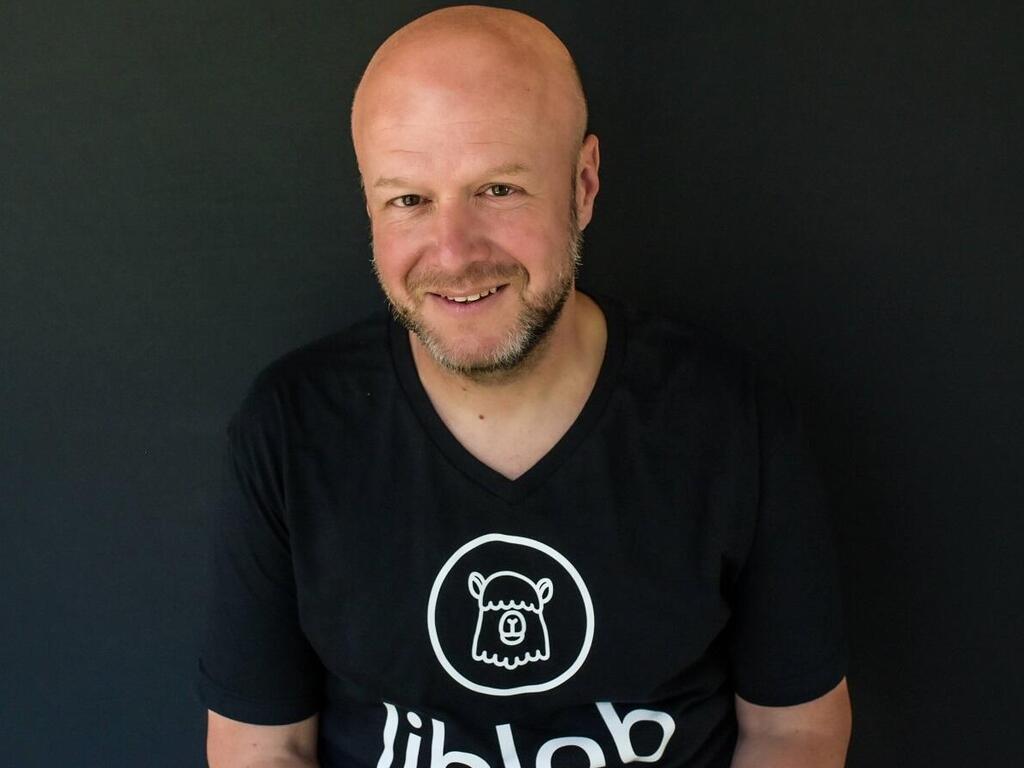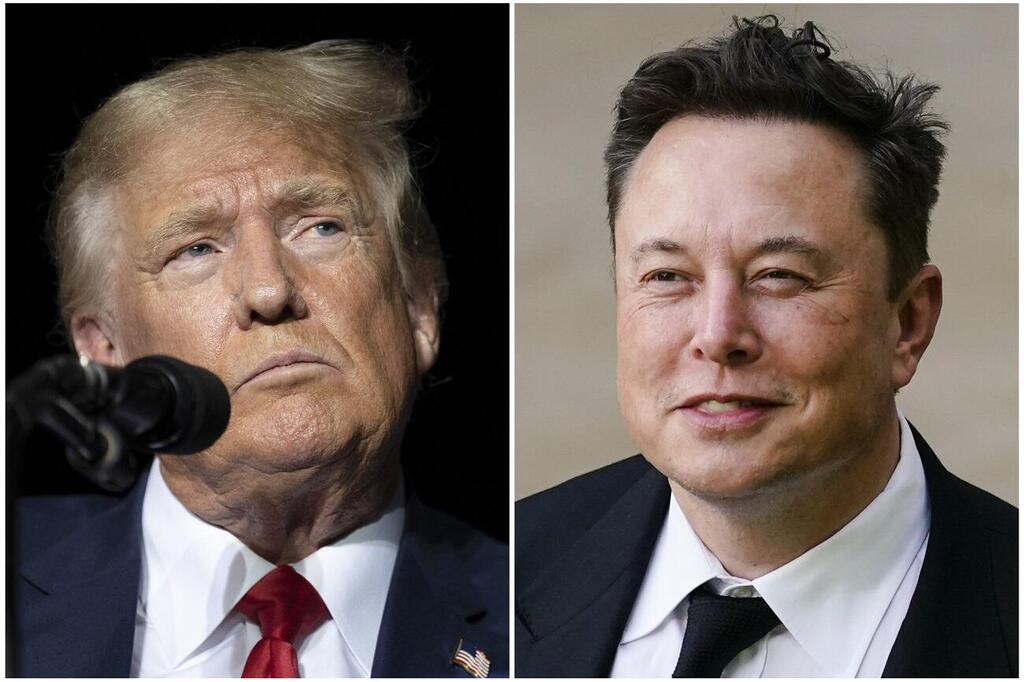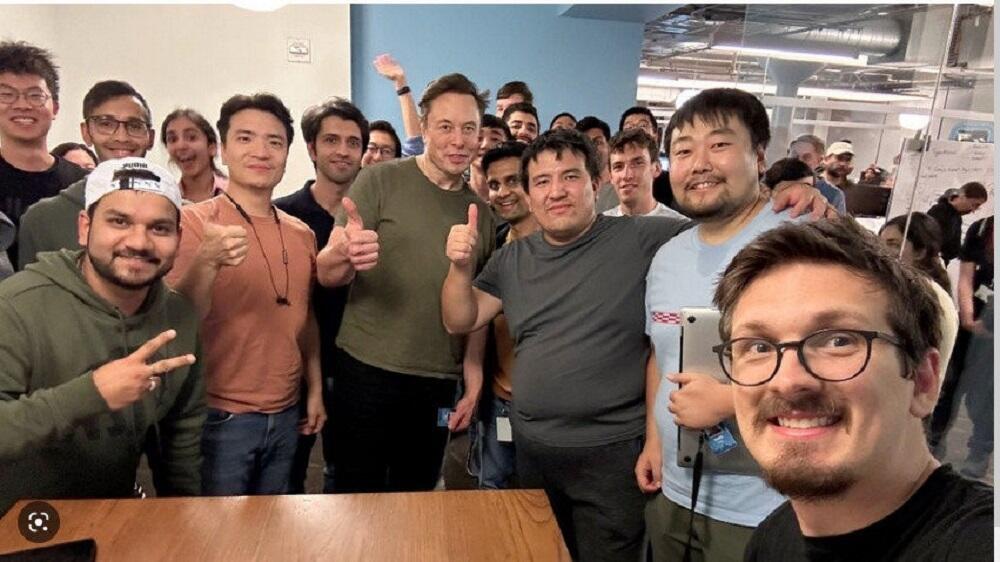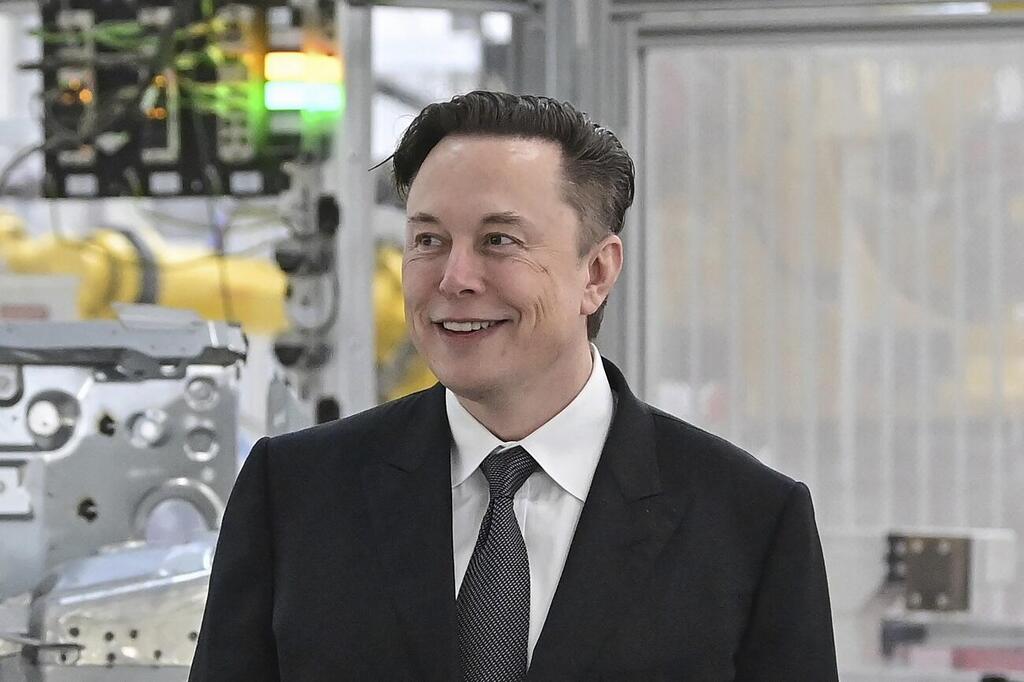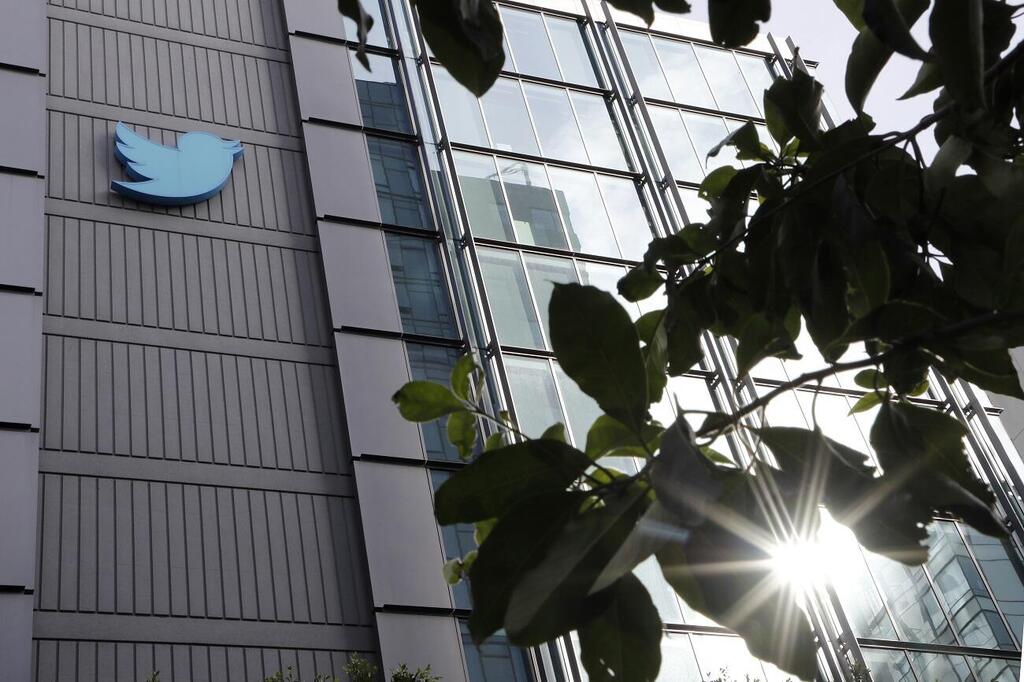Back in 2003, a young Israeli programmer named Amir Shevet received an intriguing offer to comer onboard a search engine startup called Google. While the idea of working there aroused his interest, the details of his arrival seemed suspect.
They insisted he paid for his California plane ticket and sleep at one of their programmer's apartments while he was there. Considering the somewhat odd stipulations, he said no, and regrets it until this day.
Ironically, 22 years later, a 46-year-old Shevet received a similar offer from Twitter. This time he said yes, and once again, regrets it until this day.
Still, he has been doing just fine. After serving in the IDF in a combat role, he worked at Comverse, Microsoft, Slack, Amazon, and then Google, which this time, agreed to fly him everywhere on their dime.
Mostly anonymous outside the hi-tech bubble, Amir Shevet is a well-known figure in Silicon Valley and currently resides in Austin, the capital city of the great state of Texas.
After somehow surviving the unnerving turmoil surrounding Elon Musk's infamous acquisition of Twitter, he's now here to shed some light on everything that has gone wrong since the Tesla Tycoon took over.
A normally reserved and calm family man, Shevet never thought he'd be embroiled in this sort of legal fight against one of the world's richest people. Amazon mogul Jeff Bezos even once appointed him to a senior position in Twitch, a video game streaming company acquired by Amazon.
"When I brought my kids Twitch merchandising of their favorite gaming streamers, they were delighted," he says.
Did you meet Bezos personally?
"Yes, and he changed my thinking about being a genius. I didn't think it was possible to be a real genius back then."
There was Beethoven, you know.
"I mean in our world. I came to him with six pages about Twitch's API and he gave me the sort of insight that made me think about it for months later. That's how I learned humility. He is a man with a great analytical mind."
He's depicted negatively, especially with his recent outer-space joyride.
"I don't know about that. My interactions with him have been amazing."
About 18 months after joining Reshuffle, a Palo Alto-based API startup, Shevet found himself crowdfunding for Jack Dorsey, the former Twitter CEO. He explained to Dorsey why Twitter was losing confidence among programmers due to faulty API.
In turn, Dorsey purchased Reshuffle and made Shevet Twitter's platform manager. So Shevet and Reshuffle's then-seven employees became a part of Twitter. "It was a great environment, open to all genders, ethnicities, and backgrounds, and they really put emphasis on the idea of 'remote first', so people could work from home, with no limits imposed."
They changed Twitter for the better. They made it possible to follow other users' timelines, or share simultaneous Spotify streaming. "All of that was due in November," he says.
But then the ground shook, as Musk's thunderous footsteps came ever closer. On April 15 of last year, he announced he was primed to take over Twitter, to make it an "absolute, free speech" platform, with his prime objective being the restoration of former President Donald Trump's Twitter account, previously banned for spreading misinformation.
Musk's behavior after that turned erratic, first by reversing his position on purchasing Twitter, and then re-committing to it, all while spreading bullying comments about Twitter's senior staff. "We didn't know what to make of it," Shevet recounts. "We kept wondering if he's trying to help Twitter or to damage it and that hurt productivity."
On October 26, Musk strolled into Twitter HQ holding a kitchen sink, a play on the phrase "Let that sink in", and tweeted "the bird is freed".
Everything turned upside down after that. Musk immediately fired many of the senior personnel with zero warning, replacing them with hedge fund types and people he trusted from Tesla.
"His stunt with the sink was kind of insulting," Shevet says. "I was in the middle of a chat with one of my managers when he stopped responding to my messages. Eventually, I realized he was yanked from his seat mid-chat and fired on the spot. Can you understand what that feels like?" he asked.
"You arrive at the office the following morning and no one is there to greet you. Your staff asks you what's going on and you have no answers. I went to HR and even they had no idea what to tell me."
Musk disregarded most departments and only focused on a few, forcing their staff to work around the clock or be fired.
One programmer recounted what had happened on the "Blind" social network. "I worked 24/7. If you don't work on weekends, you're done. If you take a day off, you're done. After just a few days with Musk, I was completely exhausted."
Shevet's staff was stuck in Limbo. They were given no updates or directives. At one point, one of Musk's men asked them to prepare a presentation for the next morning. "I presented it at 10 PM after the meeting was repeatedly postponed. It was clear they were not listening to the presentation and had no idea what I was talking about. They were car people from Tesla. I have no idea why they were the ones brought in."
Did you meet Elon Musk in person?
"Once, before the acquisition, when he told us why he was planning on buying Twitter. It was izarre. He spoke about Martians. It was not a confidence-inspiring conversation. Twitter should be led by someone who understands the importance of public discourse in a democracy."
Musk was not that man. He sent out an email to 7,000 recipients, telling them how Twitter was being streamlined. He even locked company doors and kept everyone out, while he was inside with his people. All entrance badges were temporarily suspended and the email reminded everyone to keep their mouths shut about what was going on or face consequences.
In early November, Shevet and most of his staff were fired. "Our computer screens just went grey all of a sudden. It's a weird feeling. Our computers were remotely sealed. It's called bricking."
How much of your staff was laid off?
"70%. When you try to communicate with people it becomes clear that there is no one left. Everyone received an email telling them their services will no longer be required. Severance packages were promised but never arrived."
How can anyone know who to fire in one week?
"I was asked to submit a list of employees. I asked whether to arrange them by seniority or salaries or performance. They just said whatever."
What did you realize the next morning?
"That I was let go. I knew I must first look out for my team. That was the value instilled in me during my military service. We sent letters to different companies asking if they have any positions open. We're talking about disabled people, people on Visas, women, and minorities. Only privileged white men remained, he said. "Those willing to dedicate their entire lives to the job and have no wives or children to come home to.
Add to that the fact that he continued to insult staffers and even fired people over Twitter. It's insulting and unprofessional, not to mention inhumane."
You posted a long message on TechCrunch and also filed a suit against the company.
"I felt I had to be a role model and show people that you can't bully others this way. Some came to me and said I gave them the courage to act. I don't think leadership ends when you're fired. It goes beyond that and you have a responsibility for your former staff."
But what is your claim? Twitter employees have all signed waivers preventing them from any future litigation.
"Severances have not been paid. When Elon bought Twitter his contract stipulated that all existing procedures in regard, to employees, must remain for a year after purchase. He broke the contract after two weeks. He fired women on maternity leaves, people on sick leave, and people on work visas who were left scrambling to find alternative employment or have to leave the U.S. after 14 days, families included. It's not just immoral. It's illegal."
Twitter became a burned-out shell with over 3,600 employees having been let go from one minute to the next, many without consideration of their function in the company.
A New York server farm came to near collapse because of it. Musk himself was unable to get into his account since the people managing it, were also let go.
When he realized that his mass firing was too hasty, he tried to bring some people back but insisted that those who remain, immediately agree to changes to the terms of their employment, such as longer work hours.
Musk said only outstanding work would be tolerated. He told the staff that if they would not accept his terms they would be fired and given a three-month severance package. He also told those who had been working remotely that if they refuse to come in for a 40-hour week onsite, they would be considered as having quit.
While many chose to quit, others were forced to stay on because of family or visa concerns. They came to the office and saw that many of the conference rooms had been converted to sleeping hubs, with makeshift beds and sleeping bags.
"This isn't a 19th-century sweatshop," Adv. Lisa Bloom, who represents the plaintiffs in the suit against Twitter, says. But Musk has not budged.
"I worked 10 hours a day and no one from my staff slacked off. I have a very strict work ethic. By the way, Google also had rooms for employees to sleep in, but telling people to give up on family lives and all other concerns outside of work is unethical and wrong. Musk is oblivious to human suffering."
Is he a psychopath?
"I don't know, but what I saw was indifference to others and bullying.
Maybe it has to do with his Asperger's syndrome.
"My wife works with people on the spectrum all the time, and she's never seen anything like this."
What's in it for him? Advertisers are abandoning Twitter and the stock has plummeted.
"The sin of vanity has its upsides. He now has 105 million Twitter followers, up from 80. You don't buy milk with that, but vanity has seen many people do many crazy things."
Is Twitter the worst place you've ever worked in?
"No. The most dangerous was the IDF, but that was also the most fun. I served in the height of the Yahya Ayyash saga (Hamas mastermind behind many suicide bombings in Israel) and I felt my service had a purpose.
"In Twitter, it also felt good for a while, especially during the pandemic. It was through tweets that people were able to ascertain which hospital in India has oxygen tanks so people would know where to go. They even called to thank us. That means something."
Can Twitter still function with half its workforce?
"I think so. Those systems were made to last, which is a testament to its engineers. But surviving and evolving are two different things. I don't know if advertisers will stay on a platform that promotes more and more hatred. Twitter will likely last, but meaningful public discourse on Twitter probably won't."
What did you personally lose from all of this?
"Money, faith and trust, and a lot of sleep. Musk tweeted something about me and Yoel Roth (former senior official at Twitter) and everyone was like 'Jews control the media, Kanye was right' and that sort of nonsense. Musk was my direct supervisor and he never pushed back against that hatred."
Since leaving Twitter, Shevet launched his own investment fund. "I made 32 investments in three years with both Israeli and American startups, and if you can find a startup to save journalism, let me know."
Shevet still gives the occasional interview to the American press. "I'm trying to raise awareness about the importance of public discourse. We still need something like Twitter, and Musk's acquisition doesn't negate that need. Some competitors are emerging but it's not there yet. I'm worried it's becoming a platform that celebrates hate.
Is it possible Twitter has become too big to replace?
"People thought that about Myspace, and today no one is on it. I believe that humanity can transcend this and come up with something better."
What are you hearing from people who are still there?
"That it's rough."
Do you think about coming back to Israel?
"Some of my kids are already in U.S colleges, so I will only come on visits, but I'll still vote in Israel."
6 View gallery


Political climate in Israel is a concern for entrepreneurs
(Photo: Yonathan Zindel/Flash 90)
Are you concerned about Israel's political climate?
"People don't understand the fragility of the "startup nation." A lot of entrepreneurs I speak to are leaving. We could be reaching a breaking point."


